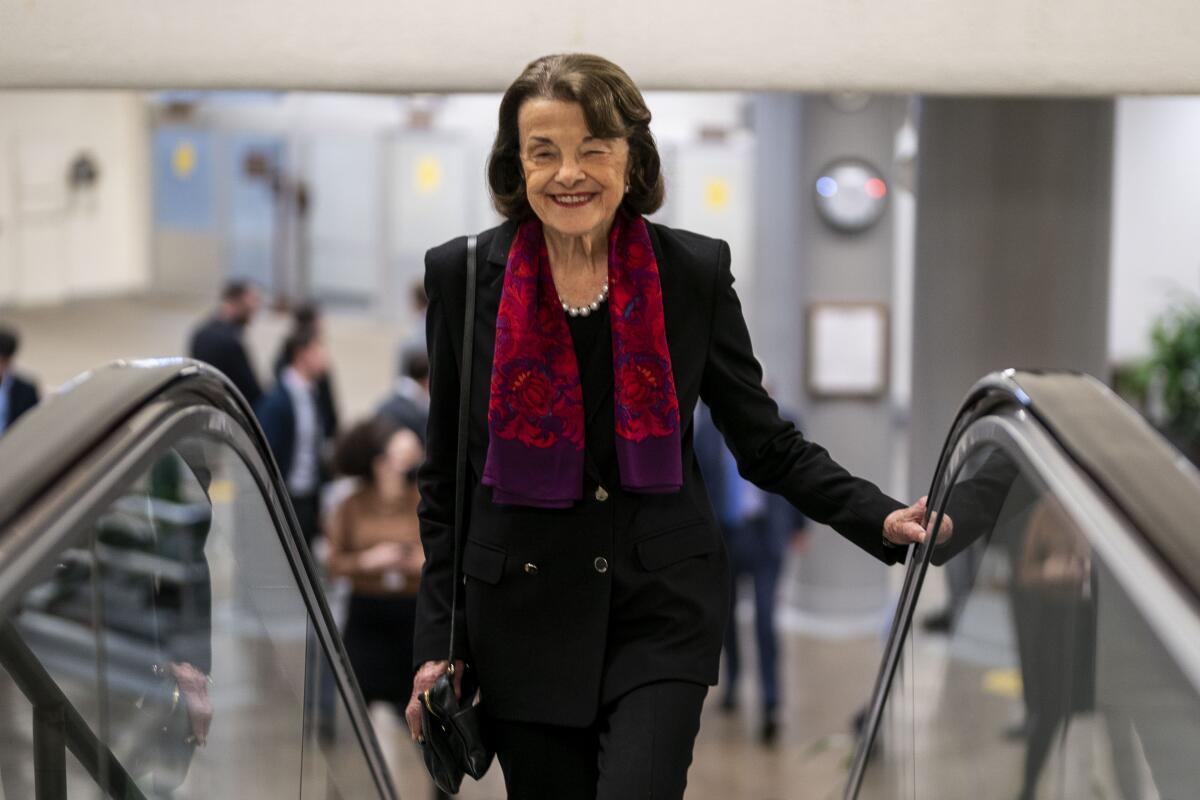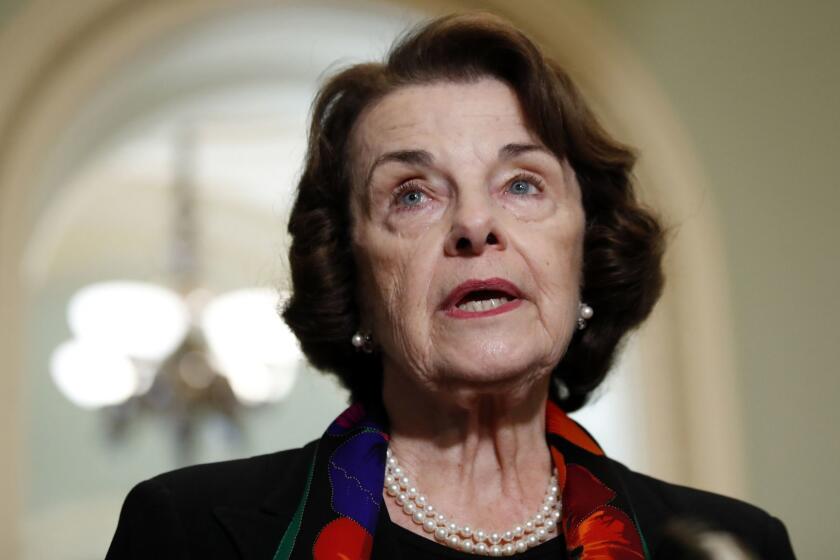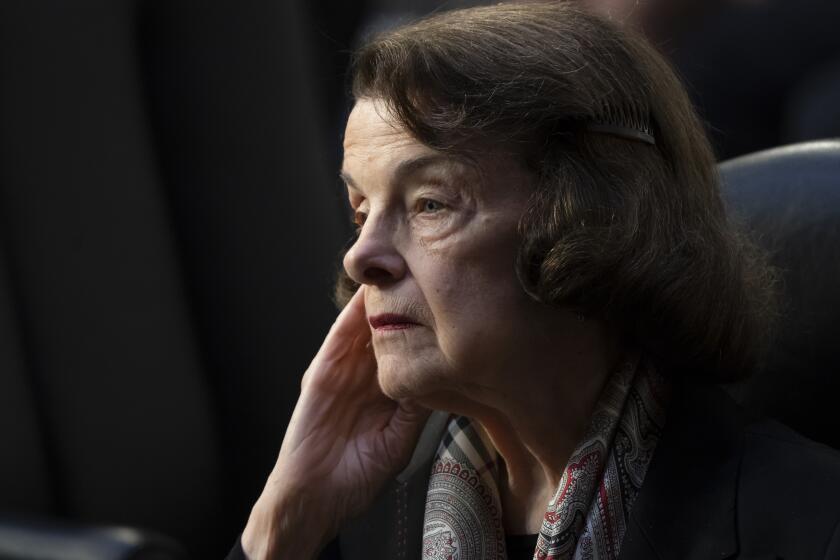With Sen. Dianne Feinstein’s retirement, an era ends for California

- Share via
Sen. Dianne Feinstein’s announcement Tuesday that she will not run for reelection next year is no surprise. At 89, Feinstein is the oldest sitting senator and California’s longest-serving senator. She has earned retirement.
Nevertheless, it’s a loss for California and the country. Few elected leaders can match Feinstein’s record of achievement over the decades or her steadfast commitment to championing the causes most important to Californians: environmental protection, gun control and immigration reform, to name a few.
Feinstein was a trailblazer in California politics, forging a path for other women to win office. In 1969, she became the first woman elected to the San Francisco Board of Supervisors. She became acting mayor of San Francisco in 1978 after the murders of Mayor George Moscone and Supervisor Harvey Milk and went on to be elected as mayor, the first woman to do so.
Before the June primary, the Los Angeles Times editorial board backed Dianne Feinstein for reelection, saying her seniority, gravitas and 26 years of experience in the U.S.
In 1992, California elected its first two female senators, Feinstein and Barbara Boxer. When Boxer retired in 2016, Kamala Harris was elected to replace her.
We haven’t always agreed with Feinstein’s votes or priorities during her three decades in the Senate. But we’ve respected her approach to legislating. She is deliberate and detail-minded, willing to spend the years it takes to move complicated policy. Millions of acres of desert habitat, including the Death Valley and Joshua Tree national parks, are protected today because Feinstein methodically pushed to ensure that California’s vast and underappreciated desert landscape is preserved for future generations.
Feinstein wrote the 1994 ban on military-style assault weapons that drove down crime committed with them, until the law sunsetted in 2004. She tried to pass another ban in 2017, after repeated mass shootings should have made the case clear for restrictions on high-power and high-capacity firearms. But by then, Capitol Hill had become captivated by the National Rifle Assn. and other gun rights groups, and Feinstein’s pragmatic legislation couldn’t get traction.
The graying of American government is a real problem. McConnell, Biden, Trump and Feinstein are just a few of our leaders in their 70s and 80s.
She has been willing to take tough stands. She insisted that the federal government release the executive summary of the classified report on the CIA’s use of torture after the Sept. 11 attacks. The document showed how the U.S. had lost its moral bearings in the search for terrorists and made the case that torturing suspects was not only immoral but ineffective.
In recent years, as the nation and our elected leaders have become more partisan and the discourse more rancorous, Feinstein has often seemed like a throwback to another era — one more civil and productive. She’s a policy wonk, not a flamethrower. Her openness to working with Republicans often angered her party’s more progressive wing, particularly during the Trump era, when many wanted California to be the state of resistance. As her poll numbers flagged, Feinstein was challenged by more liberal and outspoken candidates, including in 2018 Kevin de León, now a city councilman. She easily won reelection every time.
She has been dogged in the last few years by questions about her age, mental acuity and whether she’s still up for the job — but she has delivered for California, including securing billions of federal dollars for projects from subway construction to wildfire restoration.
With Feinstein’s exit, California will lose the seniority and ranking her tenure carries; Sen. Alex Padilla was appointed in 2021 and won his first U.S. Senate election in November.
The state is better for Feinstein’s service, but she is right to pass the torch to the next generation of California leaders.
More to Read
A cure for the common opinion
Get thought-provoking perspectives with our weekly newsletter.
You may occasionally receive promotional content from the Los Angeles Times.








